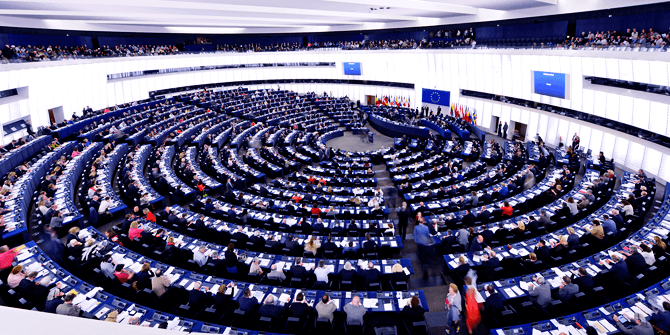On April 12th, commissioners from the European Parliament presented a proposal for an amendment to include the cryptocurrencies in the regulation of the financial system of the European Union with the goal of preventing the illicit use of cryptocurrencies.
The amendment proposes to amplify the reach of the regulators and the obligations of the participants in order to fight the financing of terrorism and money laundering. According to the official document, the cryptocurrency exchanges, wallet providers and other companies operating in the cryptocurrency ecosystem would need to register with the regulatory authorities and apply stricter Know Your Customer (KYC) measures.
The inclusion of the cryptocurrencies in the amendment highlights the necessity to establish regulatory measures for commercial activities involving the cryptocurrencies. In fact, the European Parliament Committee on Economic and Monetary Affairs believes it is essential that the regulatory authorities have control over the use of the cryptocurrencies because a lack of regulation would allow terrorist groups to transfer money within the financial system of the European Union or within the virtual currency networks and take advantage of a certain level of anonymity that these platforms provide.
For the time being, the cryptocurrency exchanges and cryptocurrency wallets are not obligated to identify suspicious activities, unlike the traditional banking institutions that have this obligation. This is one of the main reasons why the Commission urges to amplify the area of application of the new regulations and include the cryptocurrencies. According to the Commission, this would establish a balanced focus proportional to other financial industries.
The proposal also assures that the regulation would favor the blockchain ecosystem because the credibility of the virtual currencies would not increase if they are used for illegal activities. This is something that the regulatory authorities have been repeating over the years.
On the other hand, the European Parliament Committee on Economic and Monetary Affairs insists that obligating the companies operating in the cryptocurrency ecosystem to report suspicious activities would not eliminate the anonymity of the transactions. This is why the Commission thinks the only way of knowing who stands behind a certain transaction is to allow the Financial Intelligence Unit (FIU) to access the address of the wallet along with the identity of the owner.
Brice Boland, Senior Manager and Initio, a business consulting company, said: “Recent decisions by the European Commission show a considerable shift from the laissez-faire approach towards fintech regulation, including blockchain and cryptocurrency. After the amendment comes into force, professionals and especially exchange services between virtual and fiat currencies and custodian wallet providers will have to comply, which includes, of course, compliance with the regulations in their country of incorporation. Furthermore, all the services linked to cryptocurrencies will need to be registered to the AML authority of their jurisdiction.
On the one hand, the force of the cryptocurrencies is also related to their anonymity and this has presented several opportunities for criminal activities, such as money laundering or tax evasion. On the other hand, their success has represented one of the most complex challenges for professionals in terms of timing the adoption of the directive itself and the implementation of procedures and guidelines for users.
To comply with these new demands, one solution that was suggested was to ban and subsequently denounce certain cryptocurrencies violating the compliance rules, such as violations of embargoes or international laws (as, for example, a new Venezuelan cryptocurrency was interpreted as doing). The question is not to accept or not accept cryptocurrencies, because they represent a … new way of investing, but to establish controls on the kind of cryptocurrency an institution can actually accept. Another solution adapted by professionals, which is not really a new one, is to monitor transactions.”
This European Union proposed to eliminate the privacy and anonymity of the cryptocurrencies back in 2016, when stricter laws were announced. Despite working on this during the last couple of years, the Vice President of the European Commission, Valdis Dombrovskis, assured the EU was still working on a long-term regulation for the cryptocurrencies.




